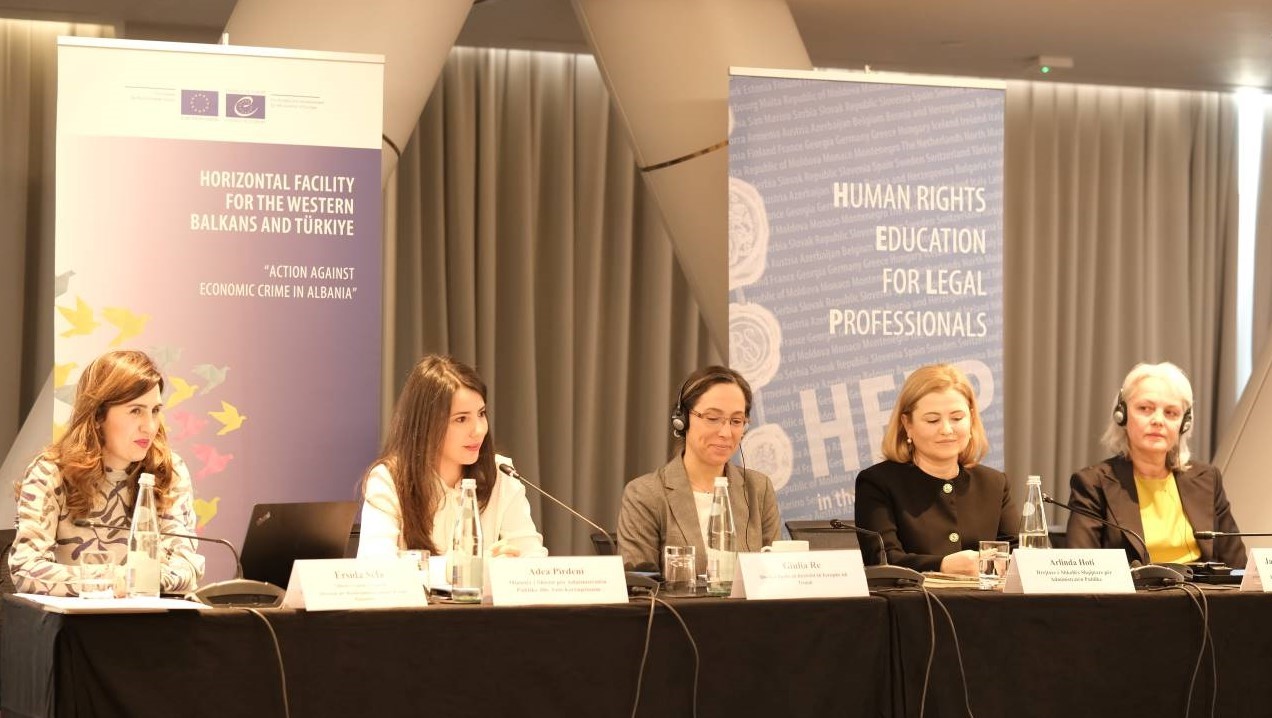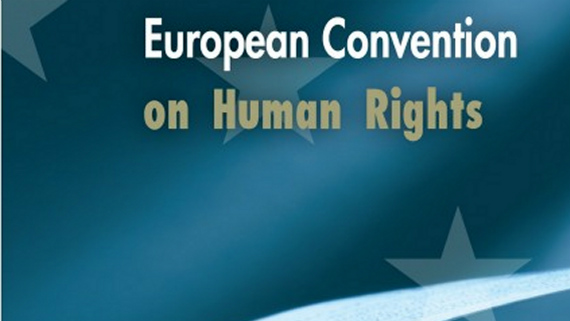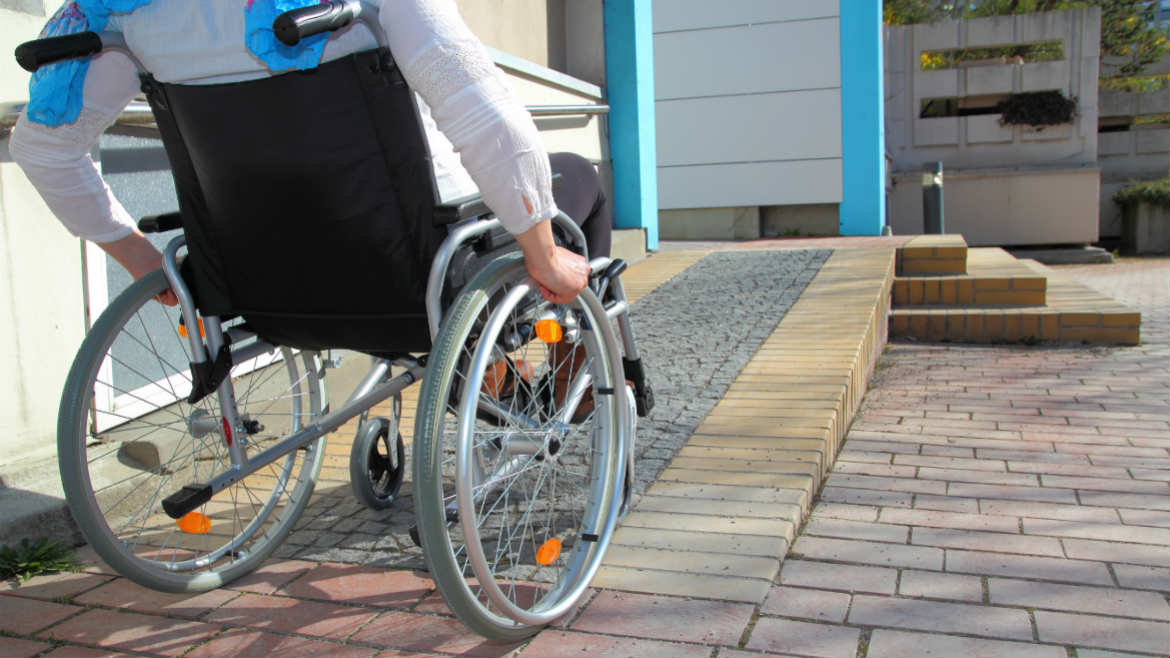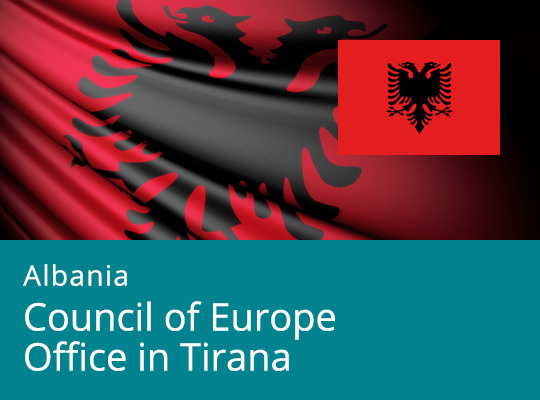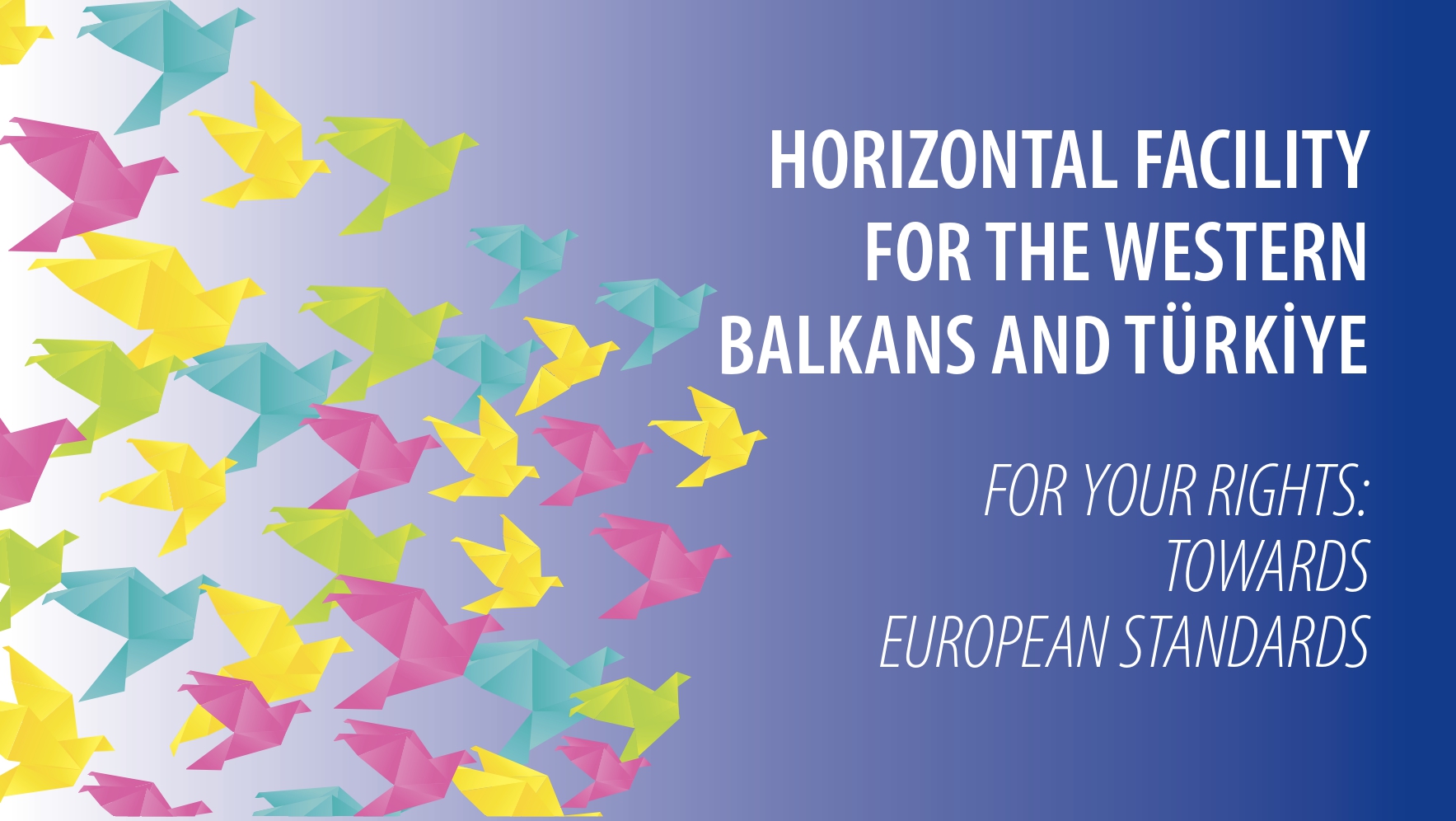The HELP course on “Introduction to corruption prevention” adapted in Albanian for local stakeholders was launched in Tirana in a public event supported by EU and Council of Europe and organised in close co-operation with the Minister of State for Public Administration and Anti-Corruption and the Albanian School of Public Administration.
This interactive online course builds awareness on the forms of corruption and prevention tools, focusing on ethics, conflicts of interest, post-employment restrictions, protection of whistleblowers, etc.. Through practical examples and scenarios, it puts on the spotlight ethical dilemmas and challenges in implementing anti-corruption measures. The course will be implemented for the political advisors of Albanian ministries as the primary target group.
In her opening remarks, the Minister of State for Public Administration and Anti-Corruption, Adea Pirdeni highlighted the importance of the course in contributing to the fulfilment of one of GRECO’s recommendation and aligning it with the Albanian Government’s priority for a professional public administration with high integrity. “Let us see this course as one element of the greater picture, being our joint initiative to ameliorate the standards and culture of work in the public administration,” said Minister Pirdeni.
Giulia Re - Head of the Council of Europe Office in Tirana commended Albanian authorities for all the efforts and the hard work done in these last years to improve fight corruption and to implement GRECO’s recommendations. She underlined that serving and protecting the public interest is the ultimate purpose of state institutions. “Cultivating a culture of public integrity by demonstrating commitment at the highest political level within the public sector to enhance public trust and reduce corruption constitutes one of the general principles of the Council of Europe regulations for the officeholders,” she added.
The course is hosted on the platform of the Council of Europe Programme on Human Rights Education for Legal Professionals (HELP). During the event, the Council of Europe experts and HELP representatives and tutors introduced main functionalities of the HELP platform and shared a thorough presentation of the course, adapted to the domestic context.
This activity was supported by the Action against Economic Crime in Albania, within the framework of the European Union/Council of Europe joint Programme Horizontal Facility for the Western Balkans and Türkiye (Horizontal Facility III), co-funded by the European Union and the Council of Europe and implemented by the Council of Europe, and the Council of Europe HELP Programme in the Western Balkans.



